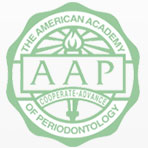Fighting Southlake Gum Disease
Periodontal disease, also known as gum disease, is a serious oral health problem. Not only is it the number one cause of tooth loss in American adults, it can also increase a patient’s risk of heart disease, stroke, Alzheimer’s, diabetes, and pre-term birth. That’s why Dr. Hsu is so committed to diagnosing and treating periodontal disease at her Irving and Southlake offices. With the information provided in this section, we can help you learn more about what periodontal disease, what causes it, and how it’s treated. If you still have questions about anything related to this serious condition, we hope you’ll give one of our offices a call. Dr. Hsu would be very happy to consult with you and answer your questions.
What is Periodontal Disease?
Periodontal (gum) diseases, including gingivitis and periodontitis, is a chronic bacterial infection that affects the gums and bone supporting the teeth. In fact, the word periodontal literally means "around the tooth." If it’s left untreated, it can lead to a range of problems, including tooth loss.
Periodontal disease can affect one tooth or many teeth. It begins when the bacteria in plaque (the sticky, colorless film that constantly forms on your teeth) causes the gums to become inflamed. In the mildest form, gingivitis, the gums become red, swollen, and they bleed easily. There is usually little or no discomfort, however. In most cases, gingivitis is caused by inadequate oral hygiene. It is reversible with professional treatment and good oral home care.
Untreated gingivitis can turn into periodontitis. With this more advanced form, plaque can spread and grow below the gum line. Toxins produced by this plaque stimulate a chronic inflammatory response, causing the body to turns on itself. As it worsens, the tissues and bone that support the teeth are broken down and destroyed. The soft tissue of the gums separates from the teeth, forming pockets that can become infected. As the disease progresses, these pockets deepen, and more gum tissue and bone are destroyed. Often, this destructive process has very mild symptoms. What’s more, teeth can eventually become loose and may have to be removed.
What Are the Causes of Periodontitis?








